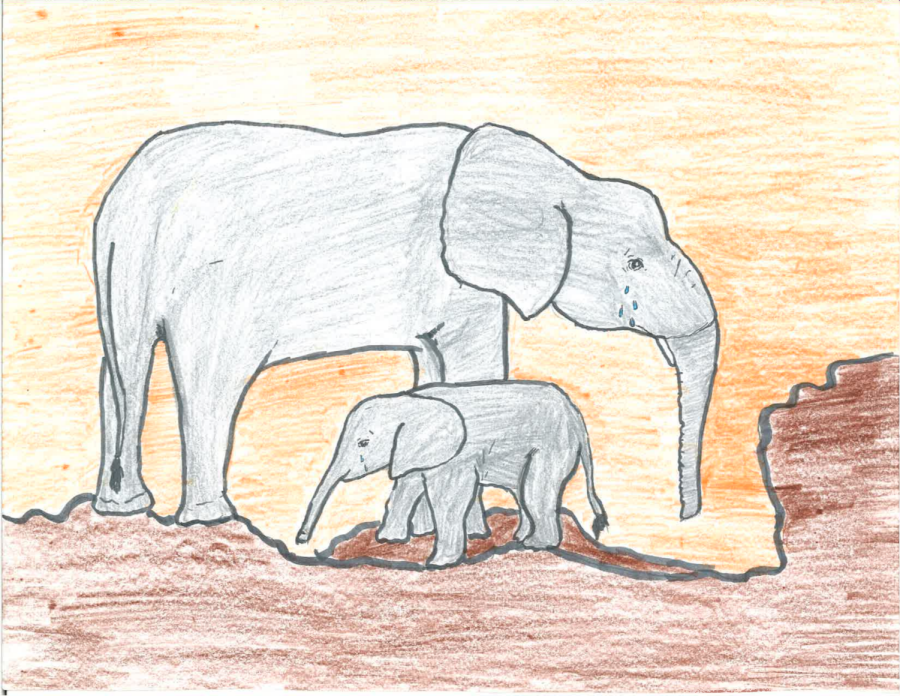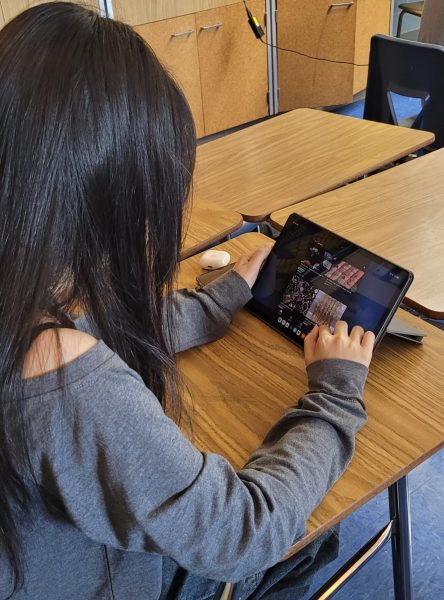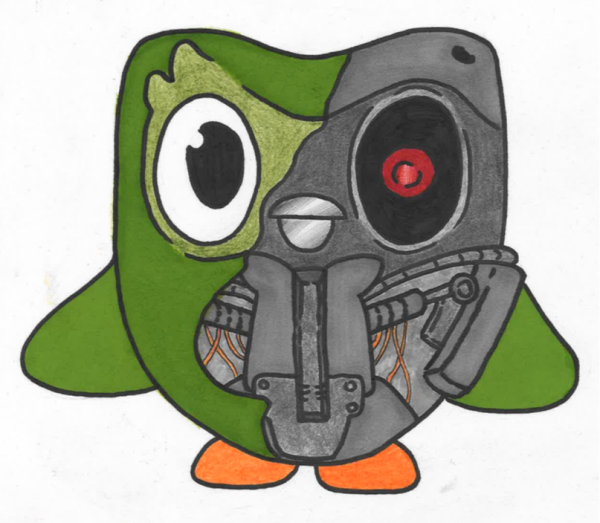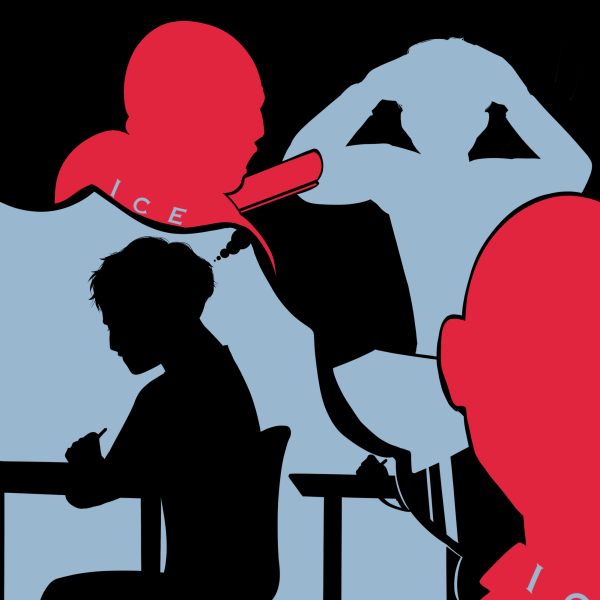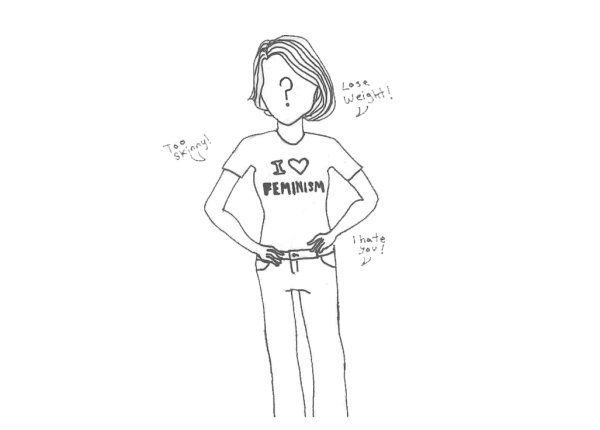Extinction is looming and it’s all our fault
From deforestation, acidification of the ocean, climate change, and a lot more environmental problems are all man-made and we aren’t acting fast enough even though it can kill us all in the future.
This story also appears in the March print edition of The Heights Herald.
Everyone knows what extinction is.
Yes, it’s the dying out or extermination of a species — a plain and simple researchable definition. However, it doesn’t explain the specifics of wildlife that are exterminated; Is it a specific plant, an animal, a keystone species or a star species? Did it happen naturally or artificially because of our influence on the planet? Does it, or did it lead to a minor or major effect on the environment? If it does die, what will happen to the environment(s) around them? There are a lot of issues we can talk about, and that’s what I’m here for. This isn’t limited to one area of the world; it’s everywhere and could potentially stay with us forever.
First of all, pollination and harmful chemicals are in the water we drink. Approximately 97% of the water on Earth is from the ocean, composed of salt water — too salty to provide any nutrients or life for any land animal, plant or human on this giant planet. Only 3% of the water on earth is drinkable and usable. But did you know that globally we use 70% of our freshwater for our agriculture even when most of that water turns into runoff and is hardly even used?
This leads to the land we use every day, including the ground itself. Many huge problems happen on land; we have destroyed and used one-third of the forests on the planet, and it’s continuing to decrease because of the use of agriculture, cropland, and deforestation. A large 75% percent of forests and grassland has been reduced to less than 30% today.
Now, one of the most important issues is our atmosphere, which protects us from the sun and its radiation that causes sunburn and skin cancer. We are overloading and overwhelming it with all sorts of greenhouse gasses like carbon dioxide, methane, nitrous oxide and other fluorinated gasses. Heating up and messing with the natural weather cycle of our planet at an alarming rate is causing our planet to experience horrific and devastating natural disasters that are happening too often now.
These major problems are all man-made problems. Deforestation of tropical rainforests and of natural forests around the world? Our fault. The acidification of the ocean and how the harm we are causing sea creatures like dolphins, manatees, turtles and a lot more only to end up mangled and missing a limb? Our fault. The air quality that can destroy our airways and kill so many animals and could kill us no time flat? Our fault. Every single technological or mechanical advancement, invention and innovation kills a part of nature no matter how hard it is to comprehend. Electricity and internet use can be a problem for the environment as well, and many people probably don’t know or, worse, don’t care. That’s 4% of all greenhouse gasses, thereby making it a pollutant by definition because it needs the power required to keep its infrastructure running and working.
It’s hard for many people to figure out how the natural extinction rate goes from two species per year to four and, over time, a total of 10 times the amount of forced extinctions of multiple animals and plants. The real reason, though, is simply human activity. Everything that we need or want is because we have to deforest and create landfills to fill up our planet with nothing but problems and garbage that can’t be burned or destroyed in environmentally friendly ways like toxic waste, chemicals, certain plastics, etc.
“I think it is important to acknowledge issues like global warming and climate change for the future because we only have one world and we need to take care of it like it takes care of us.” Yadislay Lopez Ursua (11) said. “It is important to see how global warming is an issue because if we don’t do enough to prevent the earth from becoming too hot, global warming will cause intense drought, storms, heat waves, rising sea levels, melting glaciers and warming oceans, which might not affect us as much [as humans] but directly harm animals destroying the places they live in. For example, the polar bear’s environment is getting destroyed due to global warming. If we don’t act and do something, and acknowledge the fact that we are over polluting and harming the earth, there [are] going to be consequences, putting people’s lives at risk.”
But it can get even worse and more complicated. Like bycatching; the catching and discarding of unwanted fish and other marine creatures caught during commercial fishing ends up harming or even killing marine wildlife. Commercial fishing is a huge issue as well, depleting ecosystems and contributing over 100 million pounds of ocean waste, if we want to keep diversity in the oceans and waters. Commercial fishing leads to overfishing nine times out of ten because of the demand for seafood like crawfish, clams, cod, shrimp and so many more.
Just like the fishing industry causing so many problems in our waters, there is a larger threat on land as well, causing our planet to heat up faster and creating a chain reaction of things that can go wrong.
The majority of greenhouse gasses, water pollution, soil degradation and the care of domesticated animals that goes overlooked are all because of the meat industry. Supporting local and organic farmers directly helps both the farmers themselves, us — the customers and consumers — and the environment.
“What we really need to do to improve the planet for ourselves and future generations is to start small by recycling more regularly, biking more frequently instead of driving, planting trees and stopping [the] harvest[ing of] plants faster than the soil can restock its nutrients,” Nasra Farah (9) said. “The little things do matter and may even contribute to success.”
We can all start by knowing what’s recyclable, not wasting gasoline or not driving as much from or to places, planting three trees after cutting down one, etc., plus discussing combating climate change with fellow students around the school why it’s important for others to express their concerns as well.
“As we are considered the new generation we have been promoting helping the world through social media showing the consequences. Teaching our younger siblings or kids in general how human activities prefer a profit over their only home — Earth,” Lopez Ursua said. “[Many younger] people have been creating renewable resources like solar panels and wind as energy instead of using fossil fuels that are emitting so much carbon dioxide that is being built up in our atmosphere. Many people [our age] are worried about our animals in our planet making posters, publishing videos [and] making fund[rais]ing pages, with money being donated towards companies [that] are working to change the world saving animals and their biodiversity and their ecosystem.”
It’s important to also promote sustainable and biodiversity-friendly alternatives whenever possible. I’m not telling anyone to change overnight. It’s a difficult decision and process to make because of how expensive locally sourced and organic items and foods can be. Many wonder why buy from expensive grocery stores when they could just go to a fast food restaurant. Some people go through food deserts and would have to drive or go for miles to find a grocery store that sells fresh produce. So it’s often an issue of economic, and sometimes racial, disparities and inequities too.
But it doesn’t have to look like that. There are multiple options that can help the environment and can help us, the people, go green and live a better life.
Farmer’s markets are proliferating more across many urban, suburban and rural areas more and more, and you can shop for only what you need or you can thrift or buy second-hand clothes and make sure you actually use them. We can create more gardens, grow our own food and save and reuse the seeds so we don’t have to continuously buy new ones. Donating used goods to others who need them and trying to limit the use of plastics, nonrecyclable goods and seeking out goods that use less packaging are all low-energy challenges that many can meet. Not using excessive electricity like leaving the lights on when you don’t need it or unplugging certain items that don’t need to be on and using natural light by opening a window in your house are also beneficial and don’t take much to achieve.
There are a lot of things we can do, and I believe that we can all do together to live a sustainable life and help the planet, the environment and the plants and animals that live on this gorgeous globe. It’s just up to us to make changes in ourselves for our future generations and the future planet itself. Let’s keep our planet alive so that it can provide all the resources for us to keep this symbiotically beneficial cycle going.
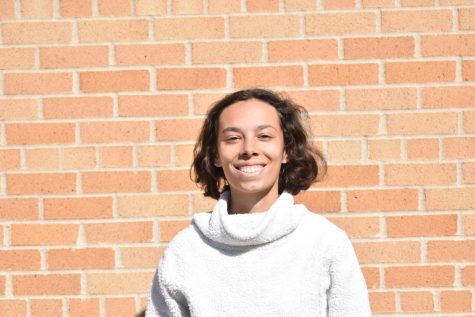
Louise Skokan is one of the funniest and most controversial staff members for The Heights Herald, currently serving as the one and only Opinion Editor....


